
The Untamed Beauty of Mikumi National Park
Mikumi National Park, situated in Tanzania, is a hidden gem for wildlife enthusiasts and adventure seekers. Covering an area of 3,230 square kilometers, it is the fourth largest national park in the country. The park is known for its diverse ecosystems, ranging from savannahs to woodlands, creating a haven for a variety of wildlife species. Visitors to Mikumi National Park can expect to see a wide range of animals, including elephants, giraffes, zebras, and lions. The park is also home to over 400 species of birds, making it a paradise for bird watchers. The Mkata Floodplain is one of the highlights of the park, often compared to the famous Serengeti Plains, where you can witness large herds of herbivores grazing peacefully. One of the unique aspects of Mikumi National Park is its accessibility. Located just 283 kilometers from Dar es Salaam, it is one of the most accessible national parks in Tanzania. This makes it an ideal destination for those looking to experience the wild without venturing too far from the city. The park is also less crowded compared to other popular parks, offering a more intimate and serene wildlife experience.
Local tips in Mikumi National Park
- Visit during the dry season (June to October) for the best wildlife viewing opportunities.
- Hire a local guide to enhance your safari experience with expert knowledge and spotting skills.
- Bring binoculars and a good camera for bird watching and capturing the stunning landscapes.
- Stay at lodges within the park for an immersive wildlife experience.
- Don't forget insect repellent and sunscreen to protect yourself from the elements.
The Untamed Beauty of Mikumi National Park
Mikumi National Park, situated in Tanzania, is a hidden gem for wildlife enthusiasts and adventure seekers. Covering an area of 3,230 square kilometers, it is the fourth largest national park in the country. The park is known for its diverse ecosystems, ranging from savannahs to woodlands, creating a haven for a variety of wildlife species. Visitors to Mikumi National Park can expect to see a wide range of animals, including elephants, giraffes, zebras, and lions. The park is also home to over 400 species of birds, making it a paradise for bird watchers. The Mkata Floodplain is one of the highlights of the park, often compared to the famous Serengeti Plains, where you can witness large herds of herbivores grazing peacefully. One of the unique aspects of Mikumi National Park is its accessibility. Located just 283 kilometers from Dar es Salaam, it is one of the most accessible national parks in Tanzania. This makes it an ideal destination for those looking to experience the wild without venturing too far from the city. The park is also less crowded compared to other popular parks, offering a more intimate and serene wildlife experience.
When is the best time to go to Mikumi National Park?
Iconic landmarks you can’t miss
Tarangire National Park
Discover the breathtaking landscapes and diverse wildlife of Tarangire National Park, a true gem in Tanzania's natural heritage.
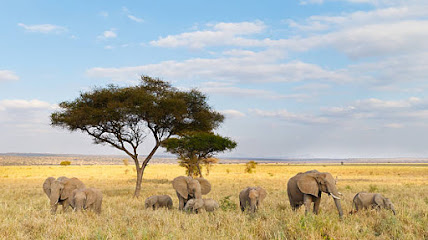
Lake Manyara National Park
Experience the breathtaking beauty and wildlife diversity of Lake Manyara National Park, a true natural wonder in Tanzania's adventure landscape.
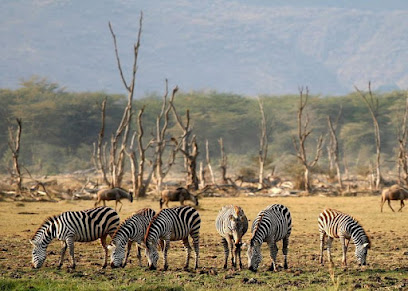
Selous Mapumziko Lodge
Experience the wild beauty of Selous Game Reserve at Selous Mapumziko Lodge, where luxury meets adventure in Tanzania's untouched landscapes.

Tan-Swiss Lodge & Campsite / Restaurant & Safaris
Discover the beauty of Mikumi National Park while enjoying the comforts of Tan-Swiss Lodge, your gateway to adventure and relaxation in Tanzania.
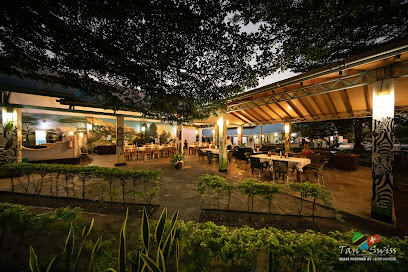
Camp Bastian Mikumi
Explore the wonders of Mikumi National Park while relaxing at Camp Bastian, a cozy hotel offering comfort and adventure in Tanzania.

Genesis snake park and motel
Explore Genesis Snake Park and Motel, a unique animal park near Mikumi National Park, showcasing fascinating snake species and serene natural beauty.
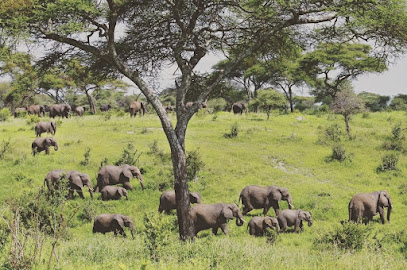
Kitulo National Park
Explore the vibrant wildflower meadows and rich biodiversity of Kitulo National Park, a hidden gem in Tanzania's Southern Highlands.
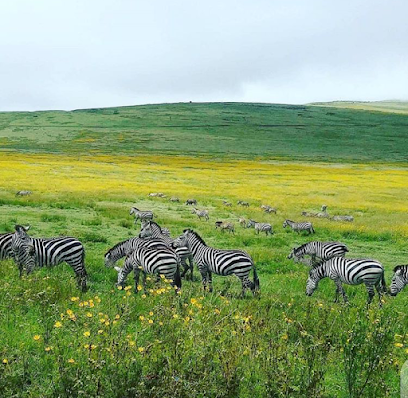
Choma Waterfalls
Experience the breathtaking beauty of Choma Waterfalls in Mikumi National Park, where nature's splendor and adventure await every traveler.
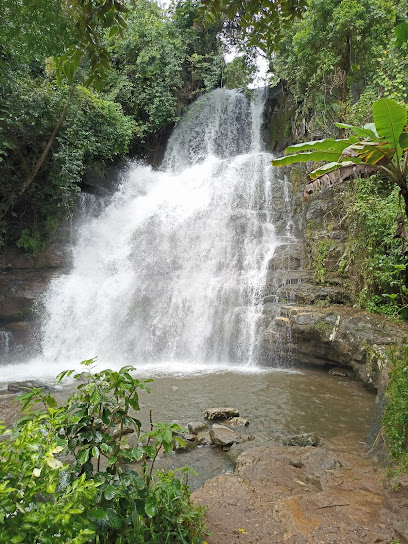
Nyerere National Park
Discover the stunning landscapes and diverse wildlife of Nyerere National Park, Tanzania's hidden gem for nature lovers and adventurers alike.
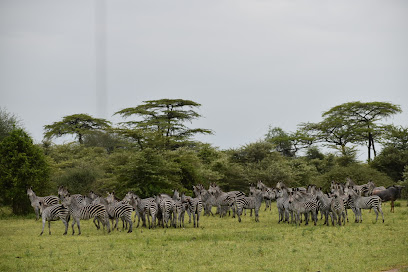
Mikumi National Park Office
Explore Mikumi National Park, a stunning Tanzanian national park known for its diverse wildlife, breathtaking landscapes, and unforgettable safari experiences.
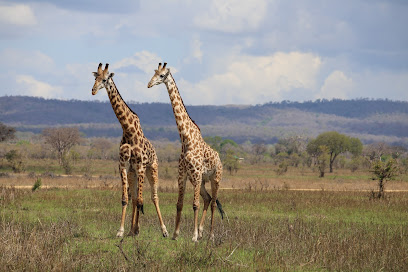
TanzAmerica Safaris Ltd
Discover Tanzania's wildlife and natural beauty with TanzAmerica Safaris Ltd - your premier tour operator for unforgettable safari experiences.
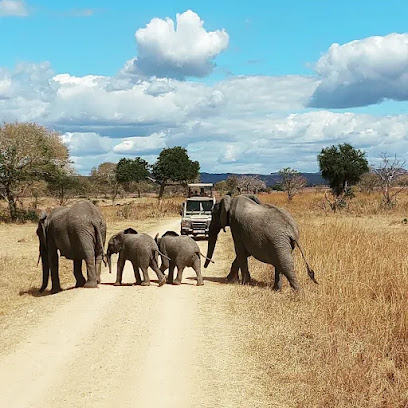
Vuma Hills Tented Camp
Discover the breathtaking beauty of Mikumi National Park at Vuma Hills Tented Camp, where luxury meets adventure in the heart of nature.

Doublegsafaris and camp mikumi
Discover the heart of Tanzania at Doublegsafaris and Camp Mikumi, where adventure meets comfort in the breathtaking Mikumi National Park.
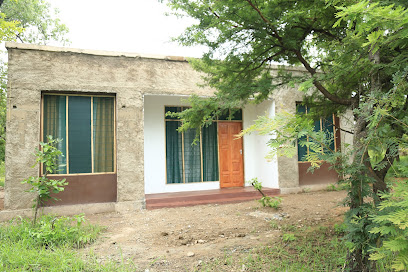
Uluguru Mountains
Discover the breathtaking Uluguru Mountains in Tanzania, a paradise for hikers and nature lovers with stunning vistas and rich biodiversity.
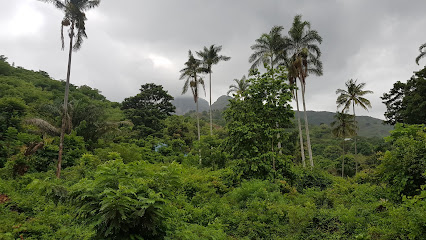
Mikumi Safari Lodge
Discover the beauty of Mikumi National Park at Mikumi Safari Lodge, where adventure meets comfort in Tanzania's breathtaking wilderness.
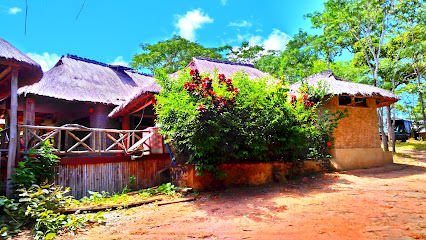
Unmissable attractions to see
Genesis snake park and motel
Experience the thrill of wildlife at Genesis Snake Park and Motel, where adventure meets education in the heart of Mikumi, Tanzania.
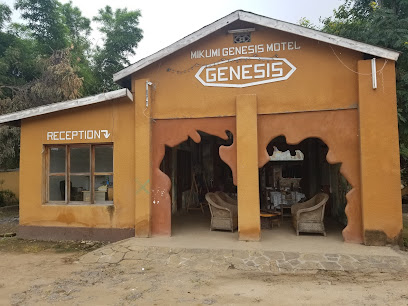
Choma Waterfalls
Experience the awe-inspiring Choma Waterfalls in Mikumi National Park - a stunning natural wonder perfect for adventure and relaxation.
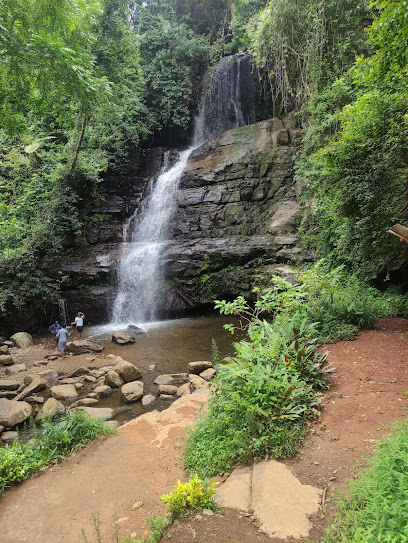
Chilunga Cultural Tourism
Discover the vibrant traditions and rich heritage of Morogoro, Tanzania at Chilunga Cultural Tourism, a must-visit for cultural enthusiasts.
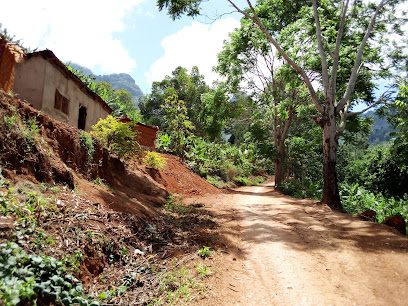
Nyerere National Park
Experience the wild heart of Tanzania at Nyerere National Park, a sanctuary for wildlife and adventure seekers alike.
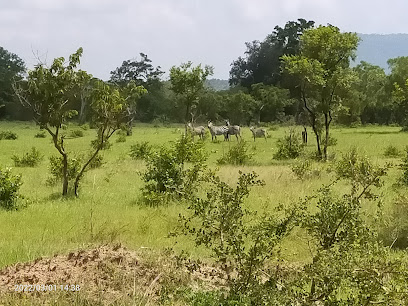
Mikumi Maasai Boma Cultural Group
Immerse yourself in the vibrant traditions of the Maasai people at Mikumi Maasai Boma, a unique cultural experience in Tanzania.
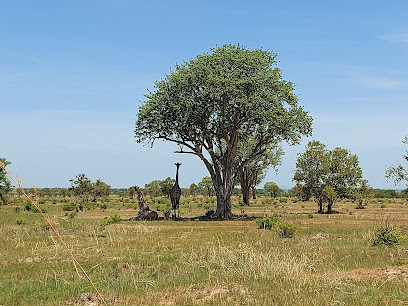
Bondwa Peak
Explore the breathtaking beauty of Bondwa Peak, a nature preserve in Tanzania, perfect for hiking, wildlife spotting, and enjoying serene landscapes.
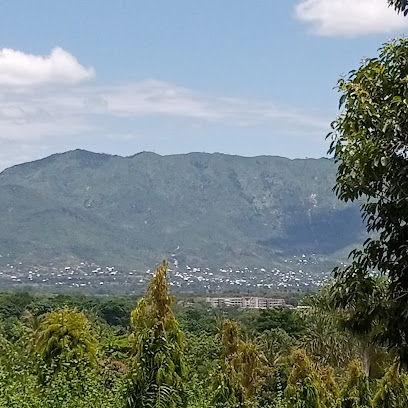
MAZI
Explore the vibrant artistic heritage and ecological beauty of MAZI in Morogoro, an essential cultural attraction for every traveler.
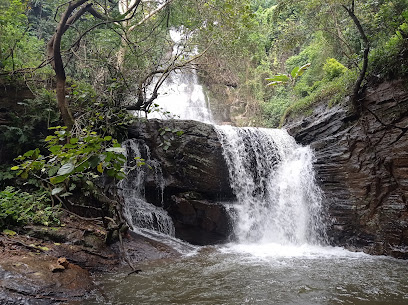
Jahazi Garden
Experience the natural beauty and tranquility of Jahazi Garden in Morogoro, a perfect escape for nature lovers and peace seekers.
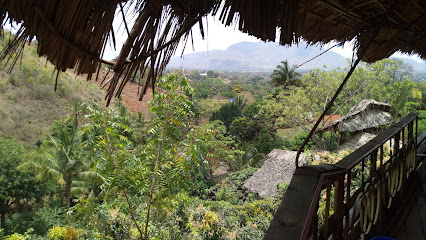
Hululu Waterfalls Mgeta
Explore the stunning Hululu Waterfalls in Mikumi National Park, a natural wonder that captivates with its beauty and diverse wildlife.
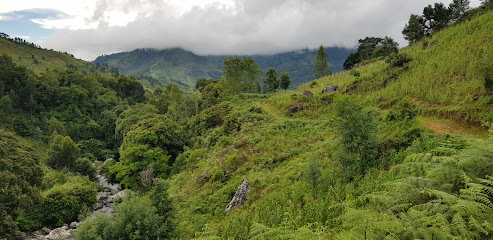
Uluguru
Explore the breathtaking Uluguru Mountains in Tanzania, where nature's beauty meets rich cultural heritage, perfect for adventurous travelers.
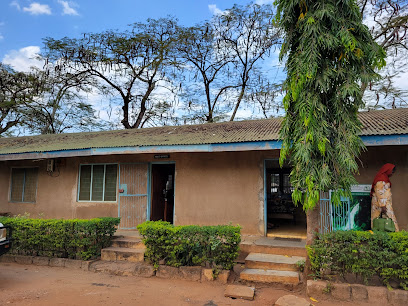
Pride Lands Safari-Doma
Explore the breathtaking wildlife and vibrant landscapes at Pride Lands Safari-Doma, a premier safari destination in Tanzania.
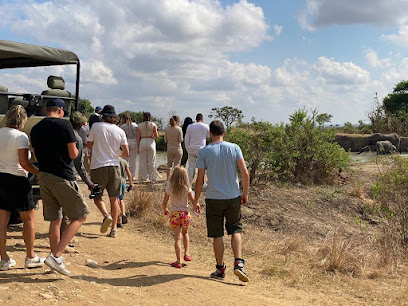
Olengijukasafaris
Discover the beauty of Tanzania's wildlife at Olengijukasafaris in Mikumi, where nature and adventure await every traveler.
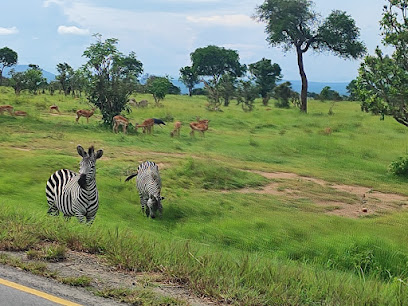
Mikumi Round about
Experience the vibrant culture and community spirit at Mikumi Roundabout, a gateway to local life and the stunning Mikumi National Park.

Camp lilac Mikumi safaris ltd
Discover the rich wildlife and breathtaking landscapes at Camp Lilac Mikumi Safaris, your gateway to Tanzania's natural wonders.
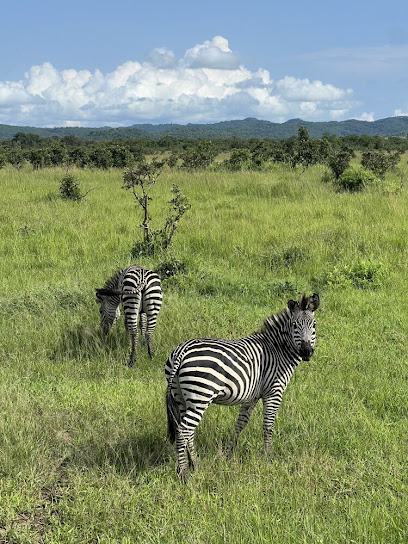
Ritungu Tours & Safari Ltd
Experience the essence of Tanzania with Ritungu Tours & Safari Ltd, offering unforgettable wildlife adventures and immersive nature experiences in Morogoro.
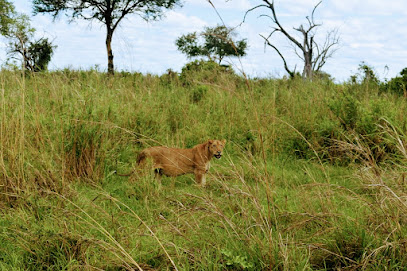
Essential places to dine
Mikumi National Park
Discover Mikumi National Park: A Wildlife Haven in Tanzania with Stunning Landscapes and Diverse Flora and Fauna.
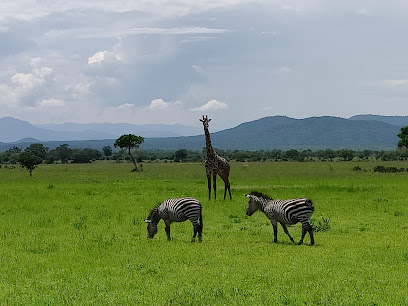
Karambezi Cafe
Discover Karambezi Cafe: A delightful fusion of local flavors and stunning ocean views in Dar es Salaam.
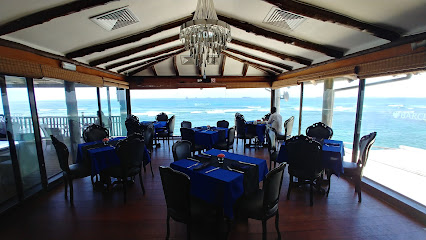
Tan-Swiss Lodge & Campsite / Restaurant & Safaris
Experience Comfort and Adventure at Tan-Swiss Lodge & Campsite - Your Gateway to Mikumi National Park's Wonders!
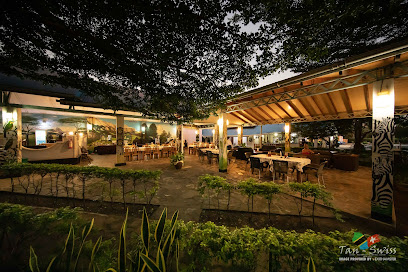
Camp Bastian Mikumi
Discover tranquility and adventure at Camp Bastian Mikumi - your gateway to Tanzania's stunning wildlife and natural beauty.

Am not owning this
Explore Mtipa's vibrant culinary scene with fresh local flavors and international delights in Tanzania's stunning landscapes.
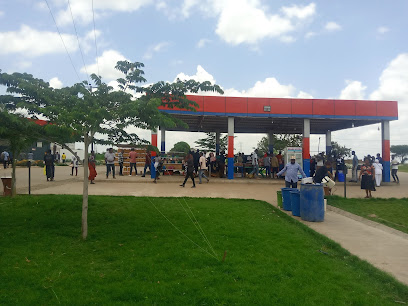
Kukurico Restaurant
Experience the vibrant flavors of Tanzania at Kukurico Restaurant in Dar es Salaam - where culinary tradition meets modern creativity.
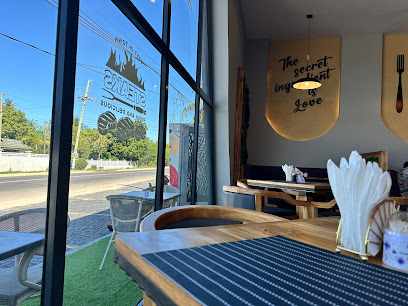
Vuma Hills Tented Camp
Discover tranquility and adventure at Vuma Hills Tented Camp, your gateway to Mikumi National Park's wildlife wonders.

Genesis Motel
Discover comfort and nature at Genesis Motel in Mikumi - your gateway to Tanzania's stunning wildlife adventures.
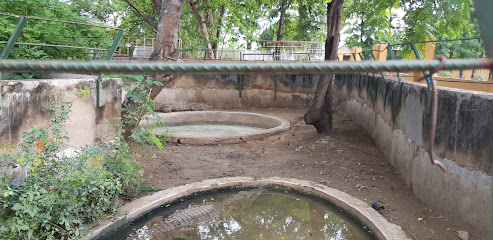
Mikumi Adventure Lodge
Experience unparalleled comfort at Mikumi Adventure Lodge near Tanzania's stunning wildlife-rich Mikumi National Park.
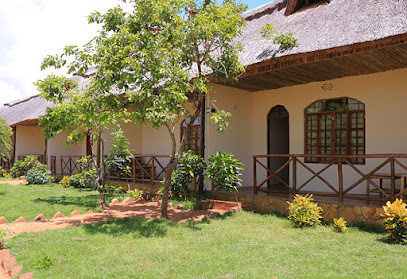
Angalia Tented Camp
Experience nature's grandeur at Angalia Tented Camp in Mikumi National Park—where luxury meets wildlife adventure amidst breathtaking landscapes.

Camp lilac Mikumi safaris ltd
Experience the breathtaking wildlife and stunning landscapes at Camp Lilac Mikumi Safaris Ltd - a premier destination for adventure seekers in Tanzania.
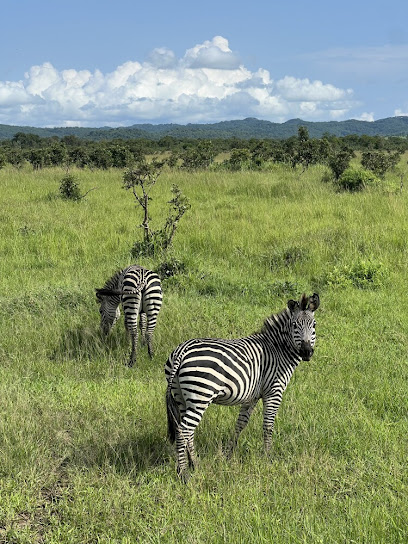
Mikumi National Park Restaurant & Lodge
Experience culinary delights amidst breathtaking wildlife at Mikumi National Park Restaurant & Lodge.
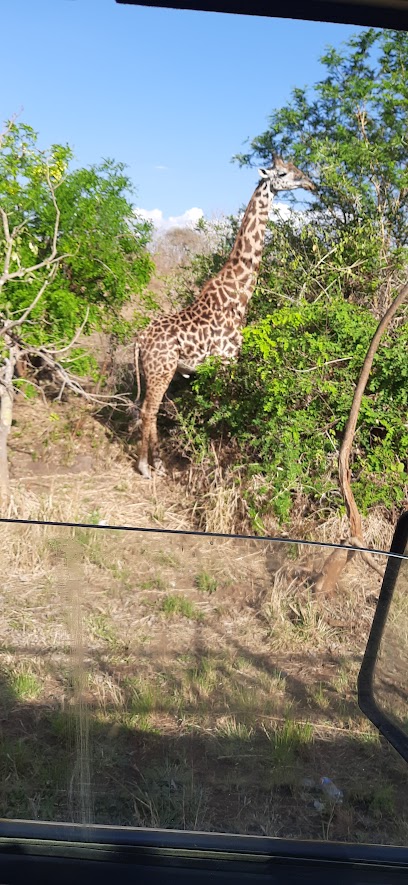
Mikumi Planet
Explore the beauty of Tanzania's Mikumi National Park with expert guidance from Mikumi Planet – your trusted tourist information center.
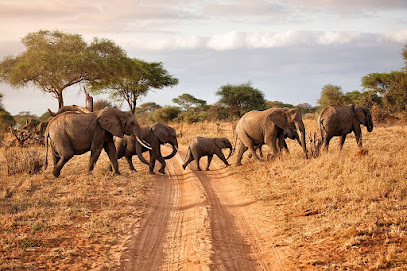
Stanley's Kopje Camp
Discover the beauty of Mikumi National Park at Stanley's Kopje Camp - your gateway to Tanzania’s breathtaking wildlife adventures.

Ngijukaholidaysandsafaris
Discover the beauty of Mikumi National Park with Ngijuka Holidays and Safaris - where adventure meets comfort in Tanzania.
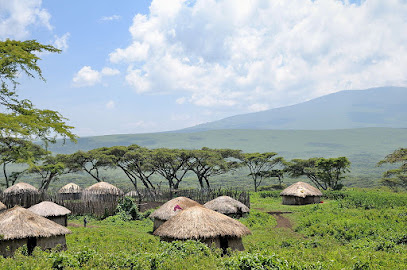
Markets, malls and hidden boutiques
Mikumi National Park
Explore the enchanting Mikumi National Park, a wildlife haven in Tanzania with stunning landscapes and diverse species waiting to be discovered.
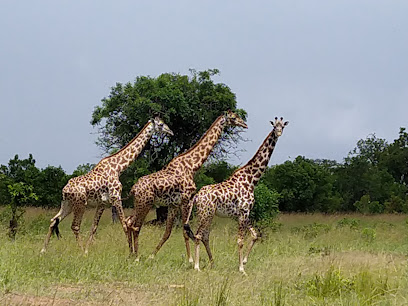
Tandai Fashion
Explore Tandai Fashion in Morogoro for a unique blend of traditional and modern clothing that showcases the vibrant culture of Tanzania.
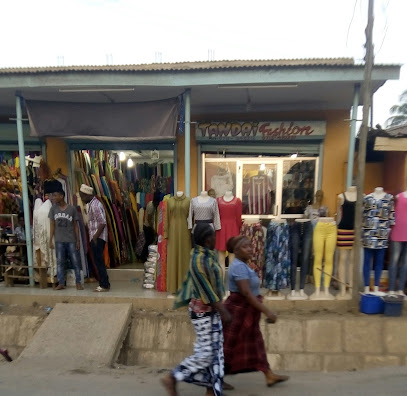
GIFT QUALITY&WEDDING WEAR SHOP
Explore the vibrant styles of Tanzania at the Gift Quality & Wedding Wear Shop in Morogoro, your go-to destination for unique clothing and gifts.
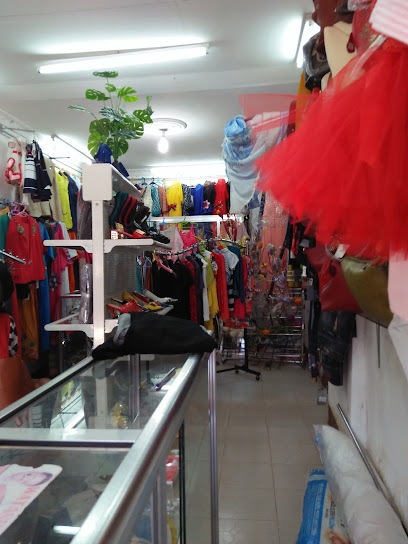
Bestman Boutique
Explore Bestman Boutique in Morogoro for unique clothing that blends local culture with modern fashion trends.
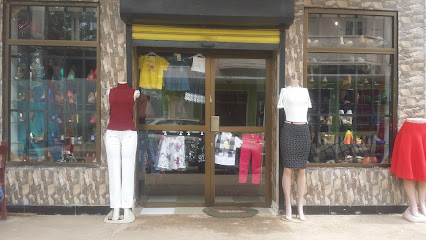
SALIMU WANJIGA
Explore the vibrant selection of handcrafted home goods at Salimu Wanjiga in Morogoro for an authentic Tanzanian shopping experience.

Tanzanite Shop - SUA
Explore the vibrant Tanzanite Shop in Morogoro for a taste of local culture, unique goods, and an authentic shopping experience.
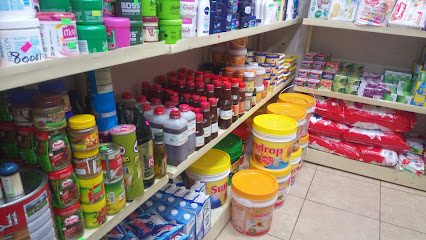
Kontena LITI
Explore the essence of Morogoro at Kontena LITI, a vibrant store offering authentic Tanzanian products beneath the Uluguru Mountains.

Jomari Shop
Explore Jomari Shop in Morogoro for unique local crafts, handicrafts, and souvenirs that celebrate the rich culture of Tanzania.
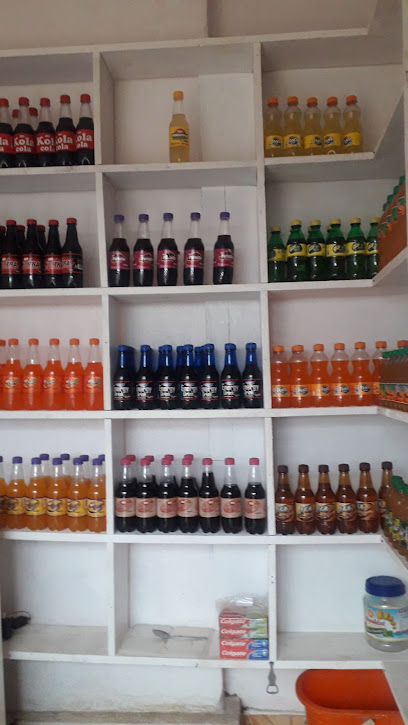
ROGERS MITUMBA SAFI SABASABA MOROGORO
Explore the vibrant world of second-hand fashion at Rogers Mitumba Safi Sabasaba, a must-visit used clothing store in Morogoro, Tanzania.
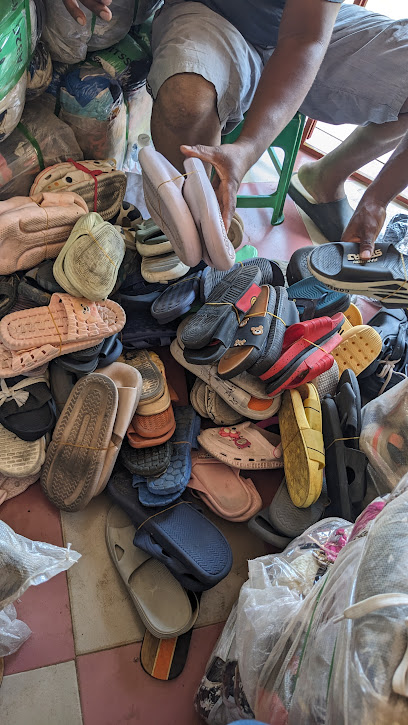
Mashingo shopping center
Explore unique home goods and local treasures at Mashingo Shopping Center in Tandai, a vibrant hub of culture and craftsmanship.
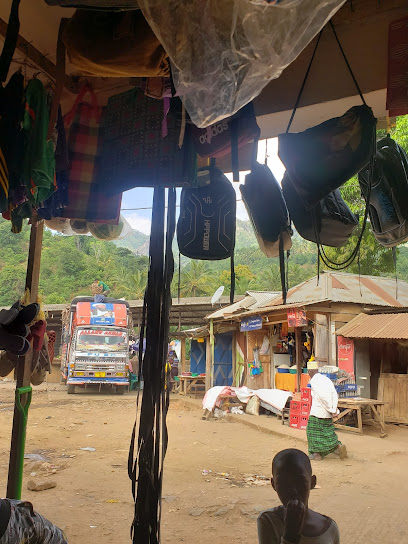
Mussa’s shop
Experience the heart of Tanzanian culture at Mussa's Shop in Dutumi, where unique local products and warm hospitality await visitors.

Usiende Mbali Mitumba Classic
Shop stylish and affordable footwear at Usiende Mbali Mitumba Classic in Morogoro, Tanzania, where local charm meets exceptional selection.

DUKANI SHOPPING
Explore DUKANI SHOPPING in Morogoro for a vibrant selection of local and international products in a welcoming supermarket atmosphere.
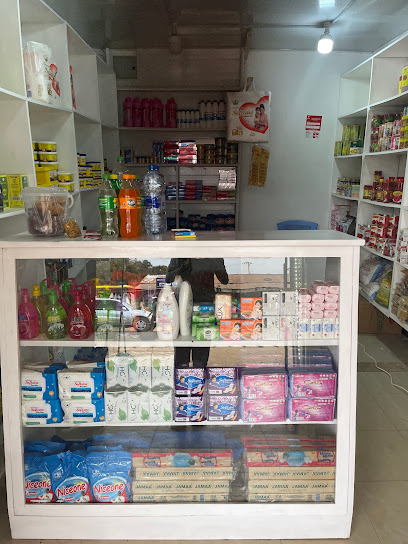
Dreamhut Enterprise
Discover the vibrant shopping experience at Dreamhut Enterprise, your premier supermarket in Morogoro, Tanzania, offering local and imported goods.

MUSA
Explore MUSA, the ultimate shopping destination in Morogoro for authentic Tanzanian handicrafts and vibrant local culture.

Essential bars & hidden hideouts
Nyumbani Park (Samaki Spot)
Discover the vibrant nightlife and delectable local cuisine at Nyumbani Park (Samaki Spot) in Morogoro, Tanzania.
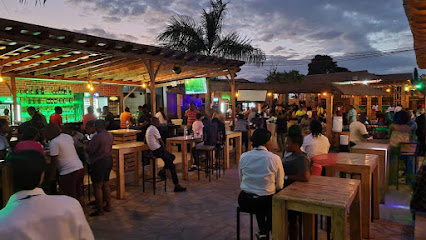
Airport Classic Bar
Discover a vibrant atmosphere and diverse drink selection at Airport Classic Bar, the ideal spot for travelers to relax in Kilombero Airport.
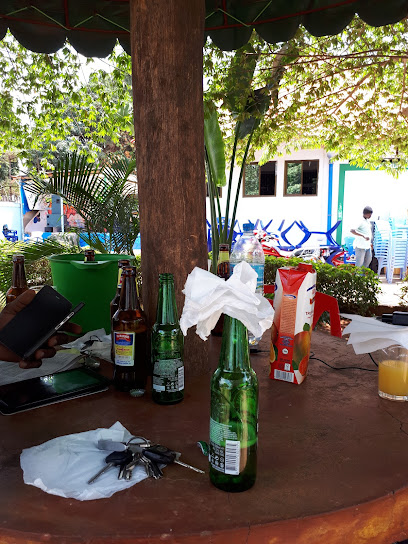
Rombo White Bar
Experience Morogoro's nightlife at Rombo White Bar, where vibrant atmosphere meets local culture and delicious drinks.
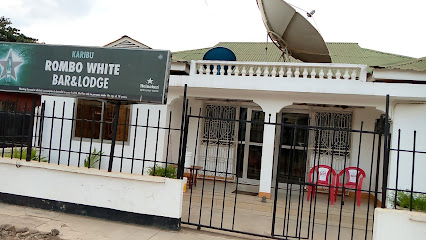
Elly Pub
Discover Elly Pub in Morogoro, Tanzania - a lively bar offering affordable drinks, local flavors, and a welcoming atmosphere for tourists and locals alike.
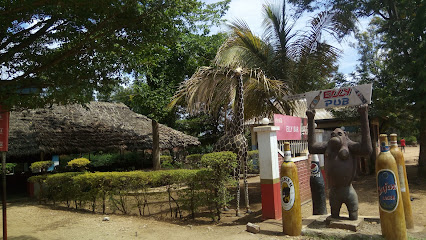
FK Bar
Discover the flavors of Tanzania at FK Bar, where every dish is a celebration of local grilling traditions in a vibrant setting.

Terminal Pub
Discover the vibrant flavors of Morogoro at Terminal Pub, where delicious grill specialties meet a lively atmosphere in the heart of Tanzania.
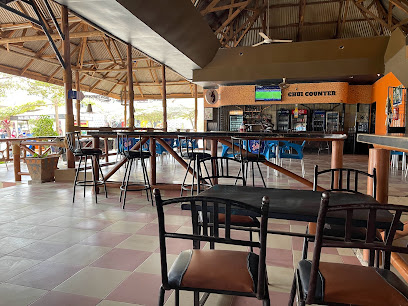
Ibiza Geez Pub
Discover the vibrant nightlife of Morogoro at Ibiza Geez Pub, where local drinks and a friendly atmosphere await.
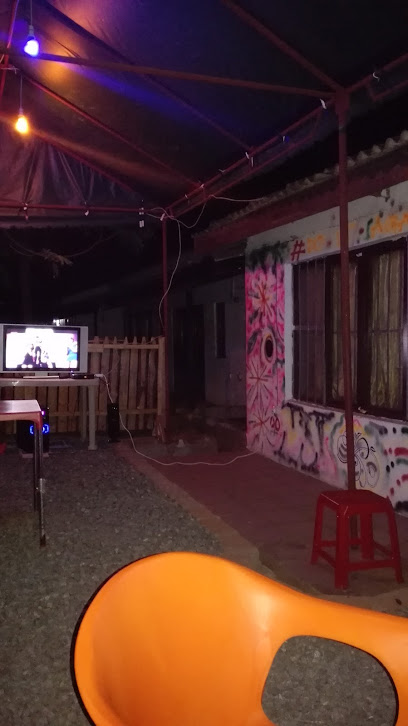
Mkuki Pub and Lounge
Experience the vibrant atmosphere of Mkuki Pub and Lounge in Morogoro, Tanzania, a perfect spot for relaxation and local culture.

Camel Pub & Lodge
Discover the vibrant atmosphere of Camel Pub & Lodge in Morogoro, where local flavors meet a lively ambiance for an unforgettable night out.
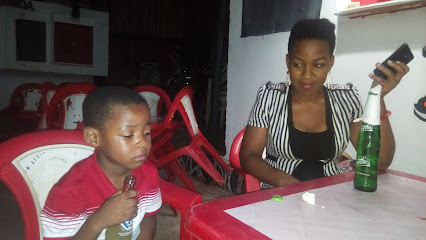
New terminal pub msamvu morogoro
Experience the lively atmosphere and local brews at New Terminal Pub, a vibrant spot in the heart of Morogoro, Tanzania.
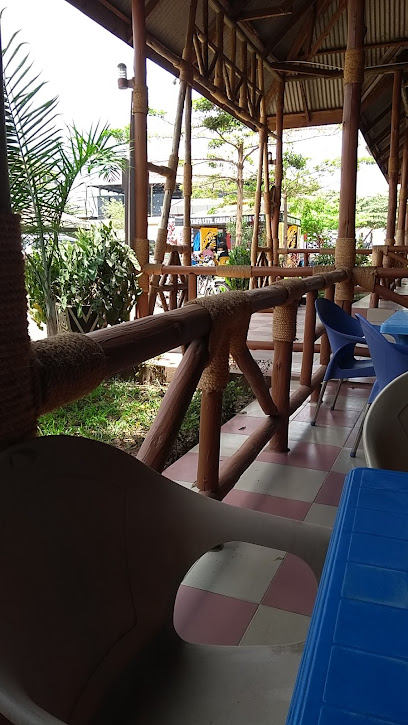
Marangu Bar and Lodge
Experience the vibrant culture and relaxing atmosphere at Marangu Bar and Lodge in Morogoro, Tanzania - the perfect spot for refreshments and local cuisine.

Ndivyosivyo pub
Experience the vibrant local culture at Ndivyosivyo Pub in Mikumi, where refreshing drinks and friendly faces await.
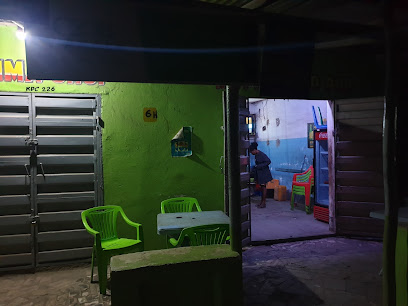
NuliNuli Restaurant
Experience the local flavors and vibrant atmosphere at NuliNuli Restaurant, Kihondo's premier bar destination for tourists.
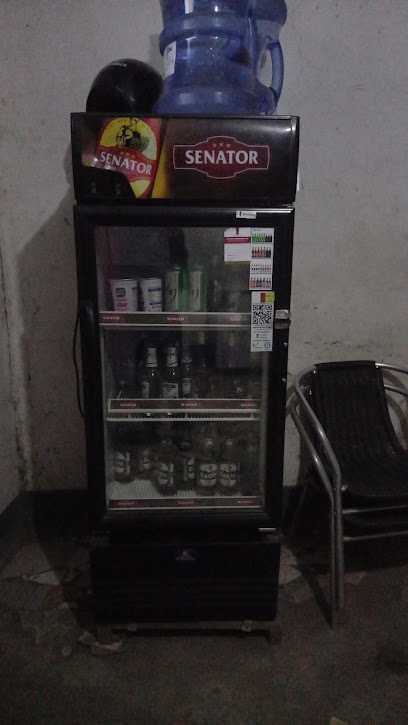
Atlantis The Palm Bar, Lodge & Hall
Experience the best of Tanzanian cuisine at Atlantis The Palm Bar, Lodge & Hall, where flavorful grilled dishes meet warm hospitality in Morogoro.
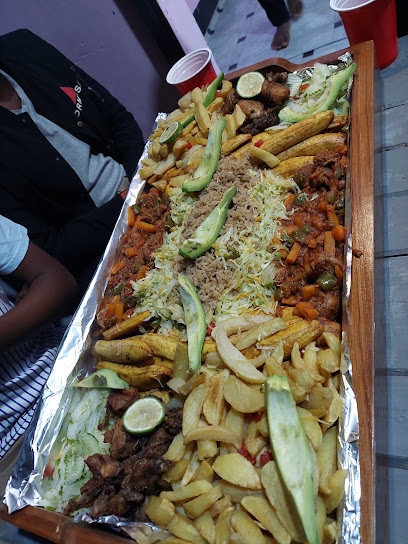
Local Phrases about Mikumi National Park
-
- HelloJambo
[jahm-boh] - GoodbyeKwaheri
[kwah-heh-ree] - YesNdio
[n-dee-oh] - NoHapana
[hah-pah-nah] - Please/You're welcomeTafadhali
[tah-fah-dah-lee] - Thank youAsante
[ah-sahn-teh] - Excuse me/SorrySamahani
[sah-mah-hah-nee] - How are you?Unaendeleaje?
[oo-nah-en-deh-leh-ah-jeh] - Fine. And you?Nzuri. Na wewe?
[n-zoo-ree. nah weh-weh] - Do you speak English?Unazungumza Kiingereza?
[oo-nah-zoo-ngoom-zah kee-een-geh-reh-zah] - I don't understandSielewi
[see-leh-wee]
- HelloJambo
-
- I'd like to see the menu, pleaseNingependa kuona menyu, tafadhali
[nee-neh-pen-dah koo-oh-nah meh-nyoo, tah-fah-dah-lee] - I don't eat meatSili nyama
[see-lee nyah-mah] - Cheers!Mambo!
[mahm-boh] - I would like to pay, pleaseNingependa kulipa, tafadhali
[nee-neh-pen-dah koo-lee-pah, tah-fah-dah-lee]
- I'd like to see the menu, pleaseNingependa kuona menyu, tafadhali
-
- Help!Msaada!
[msah-ah-dah] - Go away!Nenda zako!
[nen-dah zah-koh] - Call the Police!Piga simu polisi!
[pee-gah see-moo poh-lee-see] - Call a doctor!Piga simu daktari!
[pee-gah see-moo dahk-tah-ree] - I'm lostNimepotea
[nee-meh-poh-teh-ah] - I'm illNinaumwa
[nee-nah-oom-wah]
- Help!Msaada!
-
- I'd like to buy...Ningependa kununua...
[nee-neh-pen-dah koo-noo-noo-ah] - I'm just lookingNinaangalia tu
[nee-nah-ang-ah-lee-ah too] - How much is it?Bei ni kiasi gani?
[beh-ee nee kee-ah-see gah-nee] - That's too expensiveHilo ni ghali sana
[hee-loh nee gah-lee sah-nah] - Can you lower the price?Unaweza kupunguza bei?
[oo-nah-weh-zah koo-poon-goo-zah beh-ee]
- I'd like to buy...Ningependa kununua...
-
- What time is it?Saa ngapi?
[sah-ah ngah-pee] - It's one o'clockNi saa moja
[nee sah-ah moh-jah] - Half past (10)Saa tano na nusu
[sah-ah tah-no nah noo-soo] - MorningAsubuhi
[ah-soo-boo-hee] - AfternoonMchana
[m-chah-nah] - EveningJioni
[joh-ee-nee] - YesterdayJana
[jah-nah] - TodayLeo
[leh-oh] - TomorrowKesho
[keh-shoh] - 1Moja
[moh-jah] - 2Mbili
[m-bee-lee] - 3Tatu
[tah-too] - 4Nne
[n-neh] - 5Tano
[tah-noh] - 6Sita
[see-tah] - 7Saba
[sah-bah] - 8Nane
[nah-neh] - 9Tisa
[tee-sah] - 10Kumi
[koo-mee]
- What time is it?Saa ngapi?
-
- Where's a/the...?Iko wapi...?
[ee-koh wah-pee] - What's the address?Anwani ni ipi?
[ahn-wah-nee nee ee-pee] - Can you show me (on the map)?Unaweza kunionyesha (kwenye ramani)?
[oo-nah-weh-zah koo-nee-oh-nyeh-shah (kweh-neh rah-mah-nee)] - When's the next (bus)?Basi lijalo ni lini?
[bah-see lee-jah-loh nee lee-nee] - A ticket (to ....)Tiketi (kwenda ....)
[tee-keh-tee (kwehn-dah)]
- Where's a/the...?Iko wapi...?
History of Mikumi National Park
-
Mikumi National Park was established in 1964, making it the fourth largest national park in Tanzania. Its creation was part of a broader effort by the Tanzanian government to conserve the country's rich biodiversity and to promote wildlife tourism.
-
The park's landscape features the floodplain of the Mkata River and the surrounding savannah, which are part of the larger Miombo woodland ecosystem. The area’s geological history includes formations from the Precambrian era, offering a unique terrain that supports a diverse range of flora and fauna.
-
Before becoming a national park, the area was inhabited by indigenous tribes such as the Maasai and the Waluguru. These communities lived in harmony with the natural environment, relying on it for food, medicine, and materials.
-
During the German and later British colonial periods, the region saw limited agricultural use and hunting activities. However, early conservation efforts began to take shape as colonial administrators recognized the importance of preserving the area's wildlife.
-
Mikumi National Park is home to a rich array of wildlife, including elephants, lions, giraffes, zebras, and the rare African wild dog. The park also boasts over 400 species of birds, making it a paradise for bird watchers. The biodiversity is supported by the park's varied ecosystems, from riverine forests to open grasslands.
-
The expansion of human settlements around the park has led to instances of human-wildlife conflict. Various mitigation strategies have been implemented, including community-based conservation programs that aim to harmonize the interests of local communities with wildlife preservation.
-
Since its establishment, Mikumi National Park has developed into a popular tourist destination. Infrastructure such as roads, lodges, and visitor centers has been built to accommodate the growing number of visitors. Eco-tourism initiatives are also in place to ensure that tourism activities are sustainable and beneficial to local communities.
-
Despite its success, Mikumi National Park faces ongoing challenges such as poaching, climate change, and habitat degradation. Conservation organizations and the Tanzanian government continue to work on strategies to address these issues, ensuring that the park remains a sanctuary for wildlife and a valuable resource for future generations.
Mikumi National Park Essentials
-
Mikumi National Park is located in the Morogoro Region of Tanzania. The nearest international airport is Julius Nyerere International Airport (DAR) in Dar es Salaam, approximately 280 kilometers away. From Dar es Salaam, you can take a domestic flight to Mikumi Airstrip, which is situated inside the park. Alternatively, you can take a bus or hire a taxi for a 4-5 hour drive from Dar es Salaam to Mikumi. Many tour operators also offer organized trips to the park.
-
Once inside Mikumi National Park, the primary mode of transportation is by safari vehicle, often organized by tour operators. These vehicles are designed to handle the park's terrain and offer optimal wildlife viewing. Self-driving is also an option, but it is recommended to have a 4x4 vehicle. Guided walking safaris are available for those interested in exploring on foot. Public transport is not available within the park; however, taxis and private transfers can be arranged from nearby towns.
-
The official currency in Tanzania is the Tanzanian Shilling (TZS). Credit cards are accepted in some lodges and larger establishments, but it is advisable to carry cash for smaller transactions and tips. ATMs are available in nearby towns such as Morogoro, but it is wise to withdraw sufficient cash in Dar es Salaam before traveling to the park. US dollars are also widely accepted, particularly for park fees and accommodation.
-
Mikumi National Park is generally safe for tourists. However, standard precautions should be taken. Avoid walking alone at night and always stay within designated paths and areas. Do not approach wildlife too closely, and always follow the instructions of your guide or park ranger. Crime targeting tourists is relatively low in the park, but it is always best to stay vigilant and aware of your surroundings. Petty theft can occur, so keep your belongings secure.
-
In case of an emergency, contact park rangers or your lodge staff immediately. They are trained to handle emergency situations and can assist with contacting medical services or the police. The emergency number in Tanzania is 112. It is recommended to have travel insurance that covers medical emergencies, as the nearest major hospital is in Morogoro, about 2 hours away by road. Basic medical facilities and first aid are available within the park.
-
Fashion: Do wear lightweight, breathable clothing in neutral colors to blend into the environment and avoid attracting insects. Don’t wear bright colors or strong perfumes as they can attract wildlife. Religion: Do respect local customs and religious practices. Dress modestly when visiting nearby towns or villages. Public Transport: Do be respectful and patient as public transport can be crowded and slow. Don’t expect strict adherence to schedules. Greetings: Do greet people with a handshake and a smile. Learning a few words in Swahili, such as ‘Jambo’ (Hello), can go a long way. Eating & Drinking: Do try local dishes and always accept food offerings graciously. Don’t drink tap water; always opt for bottled or purified water.
-
To experience Mikumi National Park like a local, consider visiting during the off-peak season when the park is less crowded, and you can enjoy a more intimate wildlife experience. Engage with local guides and park rangers who can share in-depth knowledge about the flora and fauna. Don't miss the chance to visit nearby villages to experience local culture and traditions. Bring binoculars for bird watching, as the park is home to an incredible variety of bird species.
Trending Landmarks in Mikumi National Park
-
Tarangire National Park
-
Lake Manyara National Park
-
Selous Mapumziko Lodge
-
Tan-Swiss Lodge & Campsite / Restaurant & Safaris
-
Camp Bastian Mikumi
-
Genesis snake park and motel
-
Kitulo National Park
-
Choma Waterfalls
-
Nyerere National Park
-
Mikumi National Park Office
-
TanzAmerica Safaris Ltd
-
Vuma Hills Tented Camp
-
Doublegsafaris and camp mikumi
-
Uluguru Mountains
-
Mikumi Safari Lodge
Nearby Cities to Mikumi National Park
-
Things To Do in Dar es Salaam
-
Things To Do in Iringa
-
Things To Do in Dodoma
-
Things To Do in Stone Town
-
Things To Do in Zanzibar City
-
Things To Do in Tanga
-
Things To Do in Singida
-
Things To Do in Diani Beach
-
Things To Do in Mombasa
-
Things To Do in Moshi
-
Things To Do in Arusha
-
Things To Do in Mbeya
-
Things To Do in Karonga
-
Things To Do in Malindi
-
Things To Do in Tabora










